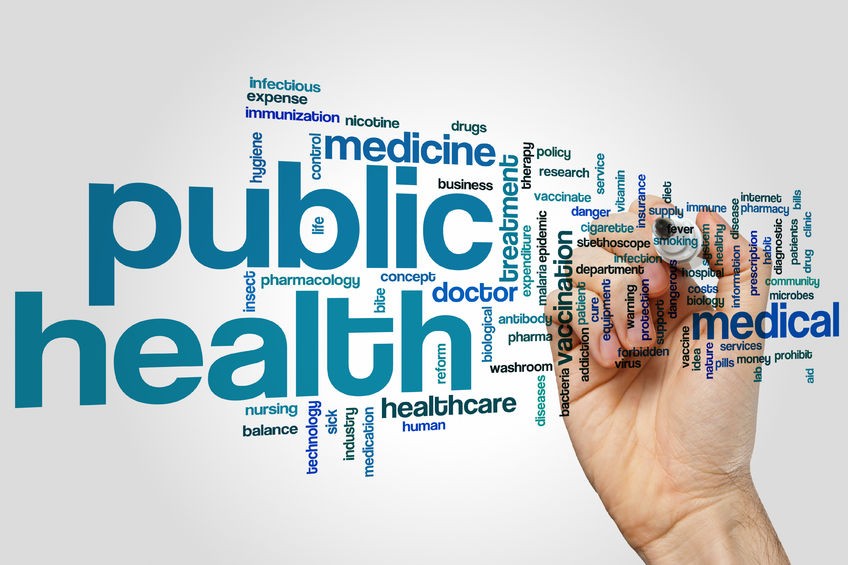The health care sector is set to expand by a remarkable 16 percent from 2020 to 2030, outpacing other sectors. This surge in demand underscores the need for adept professionals in public health. Masters in public health degree equips individuals with critical skills to address pressing public health issues. Moreover, It also boosts their ability to drive change in communities in this situation. With this degree, graduates are well-equipped to tackle global health crises like the COVID-19 pandemic.
This heightened demand for expertise opens up substantial career prospects. A 2019-2020 survey from Columbia University’s Mailman School of Public Health found that MPH graduates earned an average salary of $83,801 USD. This article will delve into the advantages of pursuing an MPH program. It will highlight the top public health schools in the United States and demonstrate how this degree can propel your career forward in a field committed to improving public health outcomes.
Key Takeaways
- The health care field is expected to grow by 16% from 2020 to 2030.
- Graduates from public health programs earn an average salary of $83,801.
- Public health professionals play a key role in addressing community health issues.
- Online MPH programs offer flexible pathways to advance your career.
- Accredited public health programs ensure quality education and training.
- Specializations within an MPH can tailor your career to specific interests.
What is a Masters in public health?
A Master of Public Health (MPH) is a graduate degree that equips individuals with the skills needed to address public health issues. It combines practical learning with various disciplines like epidemiology, health policy, and environmental health. The MPH definition highlights a focus on improving community health and making informed decisions for population well-being.
Unlike a Master of Science in Public Health (MSPH), which focuses on research and academia, the MPH prepares graduates for community roles in this case. These roles include positions like epidemiologists, disease surveillance managers, and public health educators.
The U.S. Bureau of Labor Statistics reports that MPH graduates have diverse career opportunities with competitive salaries. Firstly, health services managers earned a median salary of $110,680 in 2023. The demand for these specialists is growing, with a 28% increase expected in management roles in healthcare by 2031.

Overall, a master of public health education not only widens career opportunities but also empowers graduates to influence health systems and policies across the nation.
Importance of a Public Health Degree
A masters in public health is crucial, going far beyond traditional healthcare. It’s key in tackling issues like health access and outcomes. Professionals in this field work hard to address social determinants that lead to health disparities. They ensure everyone has a chance to reach optimal health.
Through education, individuals learn how to improve community health. They gain skills to promote health equity and make policies for healthier communities. This degree empowers graduates to tackle health threats like chronic diseases and epidemics effectively.
The U.S. Bureau of Labor Statistics projects a 17% job growth for health educators and community health workers by 2030. This shows the field’s growing importance. Graduates can work in various settings, from government agencies to nonprofits, making a real difference in public health for vulnerable populations.

Understanding public health programs covers topics like epidemiology and health policy. Graduates can work with communities and improve public health initiatives. According to Michigan Public Health, education, innovation, and practical experience prepare individuals to lead in improving community health.
| Public Health Careers | Average Salary | Projected Job Growth by 2030 |
|---|---|---|
| Medical Director | $199,877 | N/A |
| Biostatistician | $121,137 | N/A |
| Community Health Worker | N/A | 17% |
| Environmental Health Specialist | N/A | N/A |
| Health Policy Advisor | N/A | 13% |
Getting a public health degree is essential for those wanting to make a difference in community health. It prepares a workforce ready to tackle today’s and tomorrow’s public health challenges.
Benefits of Earning Your Masters in Public Health
Acquiring a Master’s in Public Health (MPH) brings significant benefits of MPH that boost one’s career. With the complexity of public health issues escalating, those with an MPH lead in improving communities. This degree unlocks a variety of career paths in healthcare administration, government agencies, and non-profits.
The master’s in public health advantages include access to high-paying jobs and roles in high demand. The healthcare and public health sectors are projected to expand by 16% from 2020 to 2030, outpacing the overall job market. This period will see the creation of 2.6 million new healthcare jobs, underscoring the need for skilled public health professionals.
Moreover, an MPH is about more than just financial rewards; it’s about making a meaningful impact. Public health experts have been crucial in navigating global health crises, like the COVID-19 pandemic. This has underscored the pressing need for trained professionals. An MPH equips individuals with vital skills in data analysis, program implementation, and health education, empowering them to address health challenges effectively.
Graduates enjoy not only specialized knowledge but also career flexibility. They can find roles across the globe, tailoring their skills to diverse settings and needs. Online MPH programs, available at many universities, offer the flexibility needed for working professionals to pursue further education without disrupting their current roles.
The influence of an MPH degree goes beyond individual benefits. Public health professionals have the chance to significantly enhance community and global well-being. This field offers a career path that is both rewarding and dedicated to service and change.

Top Public Health Schools in the United States
The landscape of public health education is shaped by esteemed institutions across the United States. These schools are among the top public health schools, known for rigorous academic programs and community engagement. Emory University stands out as the best school for a master’s in public health, offering exceptional resources and support.
Johns Hopkins University and Harvard University also rank high in masters in public health programs rankings. They provide comprehensive public health programs that equip graduates with critical skills for addressing public health challenges. Columbia University’s School of Public Health offers a diverse curriculum with six disciplines for MPH students, enhancing the learning experience through specialization.
The University of North Carolina at Chapel Hill offers a Master of Public Health degree with 12 concentration areas. This allows students to tailor their education to specific career goals.
Other notable schools include:
| University | Concentrations Offered | Early Career Earnings |
|---|---|---|
| Emory University | Various | $52,686 |
| Johns Hopkins University | Various | $11,906 more than average |
| University of California, Berkeley | 11 | Not specified |
| UCLA | 8 | $13,546 more than average |
| University of Washington | 19 | Not specified |
These programs foster academic excellence and prepare graduates for high-demand careers. Roles such as healthcare administrators, community health workers, and epidemiologists are in high demand. The Bureau of Labor Statistics projects a 17% increase in community health worker jobs and a 30% increase in epidemiologist jobs. This highlights the importance of choosing top institutions for public health education.
For detailed evaluations of various institutions, a comprehensive report on the best schools for public health is invaluable. It helps in making informed decisions about academic futures.
Choosing the Right MPH Program
Selecting an appropriate masters in public health program requires careful consideration of several factors, most importantly accreditation. Choosing accredited public health programs ensures that graduates receive a quality education recognized by employers. Programs accredited by the Council on Education for Public Health (CEPH) are particularly noteworthy, as this affiliation signifies a commitment to high educational standards.
Accredited Public Health Programs
Accreditation plays a vital role in the educational journey for public health students. Those pursuing an MPH degree benefit significantly from enrolling in programs that meet stringent criteria set by organizations such as CEPH. Graduates from these programs are well-positioned in the job market, enhancing their prospects in diverse settings, including government agencies, universities, and non-profit organizations. The majority of accredited public health programs typically span two years, although duration may vary based on enrollment status and specific institutional timelines.
Online MPH Programs
The rise of online MPH programs offers flexibility tailored for today’s working professionals. Many individuals now favor these online options due to the potential for lower tuition and the convenience of learning at one’s own pace. Classes in these programs are often asynchronous, allowing students to engage with coursework and complete assignments according to their schedules. Some online MPH programs maintain a requirement for on-campus attendance, ensuring that students still gain essential hands-on experience. With growing institutions like the University of North Carolina and Liberty University providing accredited online versions, finding the best MPH options has never been easier.
As you evaluate various MPH programs, consider aspects such as class size, course offerings, and specializations available, such as epidemiology or biostatistics. Understanding these elements will further assist in making informed choices that align with personal career goals in the public health sector. For more insights on navigating educational resources and making decisions regarding public health education, explore this helpful guide.
Public Health Career Opportunities
Graduates of Master of Public Health (MPH) programs are met with a broad spectrum of career prospects. These opportunities not only fulfill the increasing demand in the field but also match individual desires to impact communities positively. From epidemiologists to healthcare administrators, there are numerous roles where professionals can utilize their expertise and knowledge.
Common Career Paths with an masters in public health
Exploring the realm of MPH jobs unveils a multitude of career paths, showcasing the degree’s versatility. Here’s a snapshot of some of the most sought-after career choices:
- Epidemiologist
- Health Educator
- Healthcare Administrator
- Public Health Officer
- Community Health Worker
Projected Job Growth in Public Health
The Bureau of Labor Statistics forecasts robust job growth in public health. Key statistics highlight a surge in demand for various positions, underscoring the importance of public health roles:
| Job Title | Projected Growth (2020-2030) |
|---|---|
| Health Educators | 17% |
| Epidemiologists | 30% |
| Medical and Health Services Managers | 32% |
These projections signal a heightened emphasis on public health leadership and awareness, as society confronts new health challenges. Those with an MPH degree are poised to lead in shaping health policies and enhancing community health outcomes.
Core Curriculum of masters in public health Programs
The MPH core curriculum is the cornerstone of a thorough public health education. It prepares students with vital skills and knowledge for successful careers. The program typically lasts two years, but some students can finish in three consecutive semesters with certain concentrations. It includes a minimum of 42 units, with 16 units for core courses.
Essential Courses for a masters in public health Degree
Core coursework is designed to cover critical topics for public health professionals. Key courses include:
- PM 502 Foundations of Public Health – This 4-unit course explores essential concepts like ethics, disparities, and global health policy.
- Practice of Public Health PM 503 – Worth 4 units, this course focuses on practical strategies in public health, including leadership and policy advocacy.
- PM 510L Principles of Biostatistics – This course teaches biostatistical concepts and includes software training.
- PM 512 Principles of Epidemiology – A 4-unit course that introduces students to epidemiology, covering terminology, study methods, and risk assessment.
Students must also complete a practicum, involving 260 hours of field training in public health settings. This is supported by a Capstone course in the final semester, allowing students to apply their knowledge.
Possible Specializations within an masters in public health Program
Many MPH programs offer tailored specializations, allowing students to focus on areas that match their interests and career goals. These specializations include:
- Environmental Health Sciences – Students choose three specific courses to deepen their knowledge in this area.
- Sociocultural Diversity & Health – This track requires three designated courses, highlighting the role of cultural factors in health.
- Epidemiology – Students complete three specific courses to improve their understanding of disease patterns.
- Biostatistics – This specialization focuses on statistical analysis in public health and includes a seminar on recent research trends.
How to Advance Your Career with a masters in public health
Starting a career advancement journey in public health requires a masters in public health. It’s not just about learning; it’s about applying that knowledge through hands-on experiences. Internships, fieldwork, and practicums let students put their classroom theories into action in real settings.
Networking is crucial for MPH career advancement. Being part of groups like the American Public Health Association (APHA) opens doors to valuable connections. These connections can lead to job opportunities across the public health spectrum. It’s essential to understand this network for those looking to grow in their careers.
Goodwin University’s MPH program
Goodwin University’s MPH program offers three specializations: Global Health, Community Health, and Health Policy & Management. Students can complete the program in 12 to 15 months, with online classes for those who work. This flexibility is perfect for those aiming to move up in advance career public health.
Graduates of specialized public health disciplines can enter various roles. Careers like epidemiologist, health educator, and environmental specialist are in high demand. The U.S. Bureau of Labor Statistics predicts a 18% growth in public health jobs, highlighting the need for skilled professionals.
Higher salaries are another reason to consider a master’s degree. Epidemiologists and medical and health service managers earn around $78,520 and $104,830 annually, respectively. With the right skills from an MPH program, public health professionals can secure roles that are both fulfilling and financially rewarding.
The field of public health education is diverse. A master’s degree with a focus on community health prepares individuals for roles in program design and funding. This education equips them to use data effectively, benefiting various initiatives and policies. Such a comprehensive education is key to a successful public health career.
Learn more about the career paths and benefits of a master’s degree in public health through this detailed guide. Discover how you can make a difference in a field dedicated to improving health and well-being worldwide.
Real-World Applications of a masters in public health Degree
The MPH degree opens doors to a broad spectrum of public health practice areas, showcasing its critical role in addressing community challenges. Professionals with an MPH are essential in crafting health interventions for issues like food insecurity, pollution, and social inequality. Their expertise allows them to connect with communities and implement sustainable solutions.
Drexel Dornsife equips students with the skills needed for today’s dynamic public health environment through various program lengths. This flexibility caters to different schedules and lifestyles. Students can choose from 12-month to three-year programs, ensuring they can balance their academic pursuits with other responsibilities. Most students complete their MPH in under two years, ready to enter the workforce swiftly.
The demand for specialists in fields like epidemiology is skyrocketing, with a predicted 27% increase in job openings over the next decade. Graduates find employment in government agencies and the private sector, tackling critical health issues across communities.
The MPH program’s emphasis on practical applications empowers students to drive change. With eleven concentration areas, including Applied Epidemiology and Global Health, graduates are equipped to address health challenges domestically and globally.
Through internships and hands-on training, students directly apply their knowledge to real health issues, demonstrating the MPH’s community impact. The program’s mentorship, supported by a low student-to-faculty ratio, ensures personalized guidance and fosters professional development. This approach prepares MPH graduates to make substantial contributions to public health.
| Program Aspect | Details |
|---|---|
| Program Duration | 12-month, 18-month, 21-month, and 33-month tracks |
| Average Completion Time | Less than 2 years |
| Projected Job Growth for Epidemiologists | 27% increase in next 10 years |
| Student-to-Faculty Ratio | 8:1 |
| Concentration Areas | 11 on-campus, 5 online |
| Internship Opportunities | Practical application of knowledge to real health problems |
Conclusion
Earning a masters in public health is crucial for advancing your career and making a significant impact in public health. Graduates often find themselves in leadership or technical roles, with increased responsibilities. This degree not only provides vital knowledge but also opens doors to better-paying jobs.
MPH graduates apply their skills in real-world scenarios, leading to improvements in both workplaces and society. With a 43 percent increase in MPH programs since 2022, the demand for skilled professionals is rising. This degree prepares you to face the challenges in public health and empowers you to lead initiatives that improve community health and address health disparities.
The public health landscape is constantly evolving, and the need for dedicated professionals is growing. By pursuing an MPH, you’re choosing a path that boosts your career and equips you to make a meaningful difference. The future of public health relies on educated and passionate leaders like you, ready to drive change and innovation.
FAQ
What can I do with a masters in public health?
A Master’s in Public Health (MPH) opens doors to various careers. These include roles in healthcare administration, epidemiology, health education, government agencies, and non-profit organizations. Graduates can tackle pressing community health issues.
How long does it take to complete an MPH program?
A typical masters in public health program takes two years to finish on a full-time basis. Part-time and online programs offer more flexibility. Students can take longer based on their schedules.
What is the importance of accreditation for MPH programs?
Accreditation, especially by the Council on Education for Public Health (CEPH), ensures the MPH program meets high educational standards. Graduates from accredited programs have a better chance at job opportunities and career advancement.
Are there online MPH programs available?
Yes, many top public health schools offer online masters in public health programs. These programs provide flexibility for working professionals. They can pursue their graduate degree while balancing work and personal life.
What are the benefits of earning a Master’s in Public Health?
Earning an MPH leads to enhanced career opportunities, higher salaries, increased job security, and the ability to make a significant impact on public health outcomes and community well-being.
What career paths can I pursue with an MPH degree?
Graduates can pursue careers such as epidemiologists, public health educators, healthcare managers, environmental health specialists, and health policy advisors.
What topics are covered in the core curriculum of MPH programs?
The core curriculum includes subjects like epidemiology, biostatistics, health behavior, environmental health, and health policy. These subjects equip students with the knowledge needed for effective public health practice.
What are the projected job growth rates for public health professionals?
The Bureau of Labor Statistics projects significant job growth in public health careers. This includes 30% for epidemiologists, 17% for health educators, and 32% for medical and health services managers from 2020 to 2030.
What are the possible specializations within an MPH program?
MPH programs often allow students to specialize in areas like global health, maternal and child health, health policy, and environmental health. This enables them to tailor their education to their career goals.
How can I advance my career with an MPH?
Advancing your career with a masters in public health involves acquiring knowledge, engaging in internships and networking opportunities, and participating in professional development activities. These activities enhance skills and connections in the public health sector.
 dailyblogger.xyz
dailyblogger.xyz



